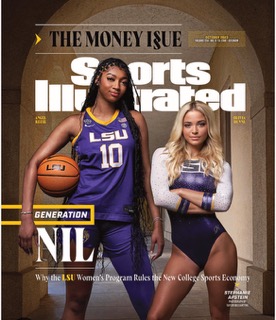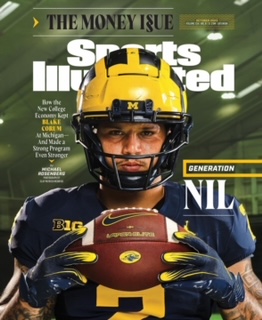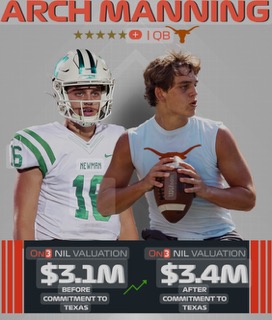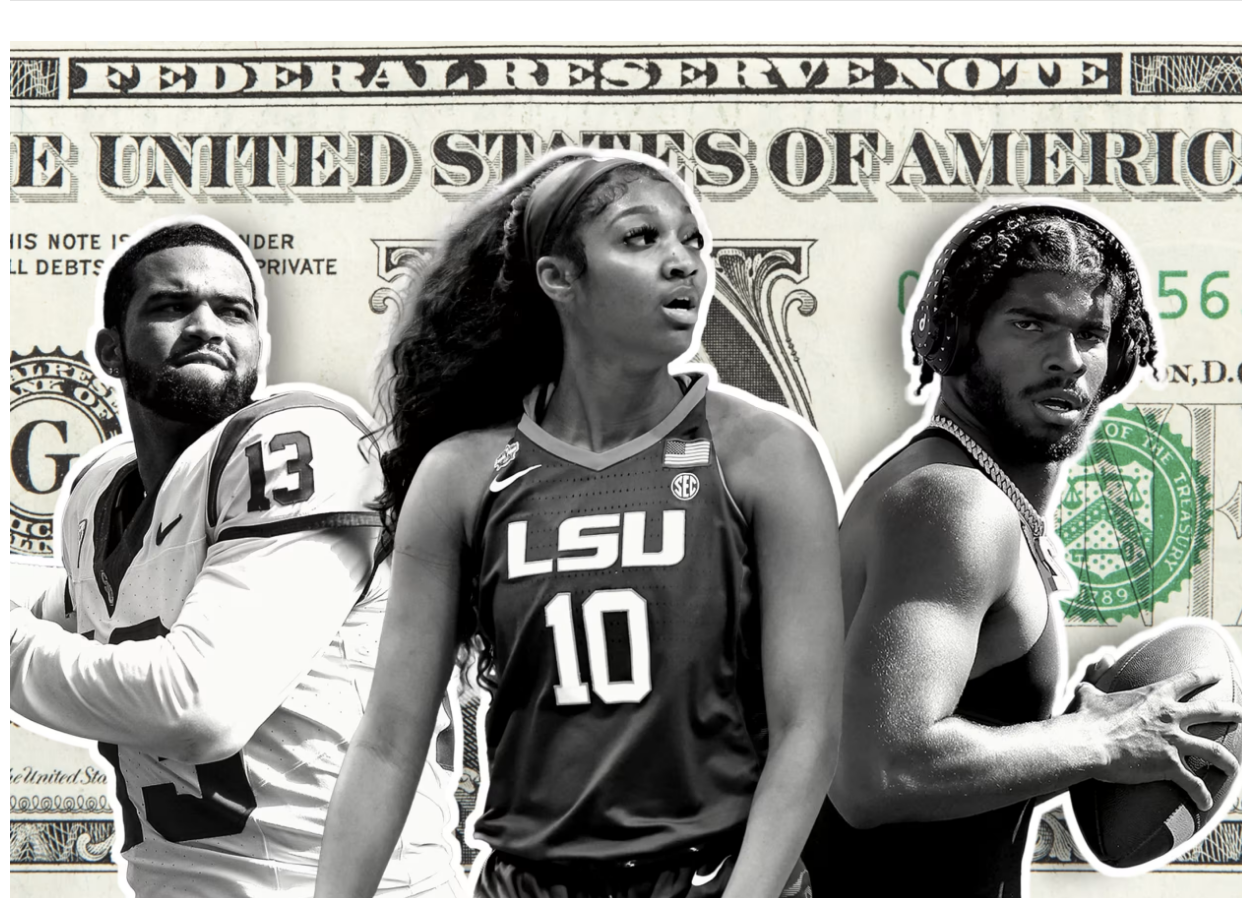What Is An NIL Deal?
NIL stands for “name, image, and likeness.” NIL deals allow collegiate athletes to control how their image is used, meaning that athletes can engage in various endorsements without jeopardizing their eligibility to compete at the highest level. These deals can vary widely, from collaborating with athletic brands like New Balance, social media endorsements, commercial appearances, and merchandise sales. Each NIL deal is unique and is significantly based on the athlete’s marketability, sport, and personal brand.
Why Was NIL Illegal?
In 1987, Southern Methodist University located in Dallas, Texas was charged with the NCAA’s version of the “death penalty,” banning the team from competing in any college football for almost 2 years. This was due to their 21 straight losing seasons, and SMU’s unethical attempts to recruit and retain players by paying them. According to ESPN‘s 2010 documentary film Pony Excess, much of the cheating took place with the full knowledge of school administrators. This is what kept paying college players illegal for 34 years.
Is NIL Good or Bad?
NIL deals can be beneficial for empowering athletes, but it does emphasize the unfairness and the sometimes negative impact on the dynamics of college sports. Ohio State University’s football team announced a collective NIL deal valued around $20 million for their whole team. Therefore, each player on the team regardless of playing time, injuries, or recruitment status will receive around $800,000 in college just by owning a personalized OSU football jersey. That level of money for collegiate athletes that may never play makes them look like professional athletes. This is an example of how NIL has ruined the dynamic of college sports because it should be different from professional sports, but NIL ruins that at the huge Division 1 schools. This also creates a problem for less popular sports because it makes it harder for them to fund their teams. In 2024, the Power-5 Conferences went from 5 to 4 because of the money in football. Now, the women’s sports teams in California that were in the Pac-12 Conference have to scrape together enough money to fly across the country to play regular season games in the ACC Conference.
However, NIL deals have given athletes the opportunities of a lifetime to skyrocket their careers into a new stratosphere. Paige Bueckers of UConn Women’s Basketball was the first female collegiate athlete to sign a deal with Gatorade. Bueckers was also signed to a women’s 3-on-3 basketball league called Unrivaled. Bueckers will become the first current NCAA athlete to be a part of a professional league. Bueckers says, “I just want to be the best version of myself, on and off the court. These opportunities are doing that for me, and it started with NIL.”

Livvy Dunne, an LSU gymnast with the most earnings in NIL money out of any female athlete in college, says, “The day the NIL rule changed, my life changed. The emphasis on women in sports that NIL provides is so vital because for women, there really aren’t many opportunities after college to pursue the sports that we love… especially for a gymnast.” Dunne’s success in NIL came from social media. Her following on Tiktok and Instagram has allowed her to become the most well known collegiate athlete. Alongside Dunne, Angel Reese, an LSU women’s basketball player, has branded her name along with Dunne. They both starred on the cover of Sports Illustrated: Why LSU Rules The New Collegiate Sports Economy. NIL deals are particularly impactful for female athletes because their sports just aren’t valued as much.

NIL can give collegiate athletes the money to run organizations that promote their school rather than their own image. Former Michigan football running back, Blake Corum, has used his NIL money to operate numerous Michigan football camps free of charge, so that young athletes can be exposed to the university. Corum was also selected to the 2023 AFCA Good Works Team for using his NIL money to distribute turkeys throughout Ann Arbor. Corum says, “The greatest part about being a Michigan wolverine is not just putting on the uniform, but what it represents. Michigan football is for the kids, and my work with families in Ann Arbor has shown me how to make a difference with donations from NIL money.”
Other NIL Deals
Caitlin Clark, an Iowa University women’s basketball player with the most points in collegiate history, has NIL deals with Nike and Gatorade. She is another example of how NIL is very impactful on women’s sports because her extraordinary talent made prices of women’s playoff basketball games increase by 454%. Her ability to attract fans to come watch her made it so that they enjoyed watching women’s basketball, and wanted to continue to see more.

Quincy Wilson, a 16-year old gold medalist in the 4x400m at the Paris Olympics, has an NIL deal with New Balance. Though only a junior in high school, Wilson’s talent sent him all the way to Paris in 2024, promoting his name, image, and likeness as the youngest male track and field athlete to ever compete at an Olympic Games.

Arch Manning, the backup quarterback at the University of Texas, has an NIL deal valued at $3.7 million. That is 65% more than what half of the rookies in the NFL will make. Though Manning does not start for Texas, his NIL is the most of any college football player because of his reputable family name including 2x Super Bowl champions Payton and Eli Manning, and his father Cooper Manning.
Name, Image, and Likeness… the value is sometimes preposterous and unequal amongst different genders and sports, but it has offered opportunities that have changed the lives of many collegiate athletes.

